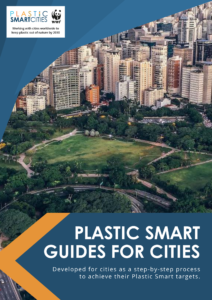Adopt new policies, engage key stakeholdes, improve waste infrastructure, encourage innovation
Get focused on implementing activities designed in the City Action Plan. From policy interventions, to improving waste management capacity (collection, separation, recycling infrastructure etc), to multistakeholder processes and citizen engagement, implementation toward specific targets requires careful planning and monitoring and evaluation to assess impact. The phase should include a pilot project to trial solutions within a designated area, with a goal to reduce plastic pollution by 30% in the pilot area.
See the Implementation guide.

